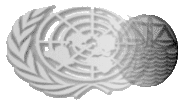|
Wednesday, 15 June
|
|
Plenary
|

Workshop Chair John Roberts of England and Secretary Alice Hicuburundi
of Burundi.
|
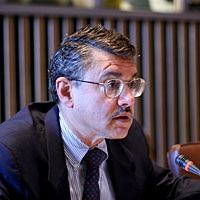
Tom Laughlin of the United States suggested establishing an open ended
review of the work of the steering committee.
|
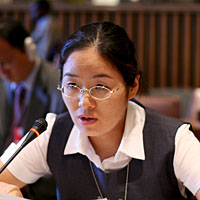
Huh Jung Ae of the Republic of Korea expressed doubts as to whether
the Assessment of Assessments should provide advice to the General
Assembly, or to member States.
|
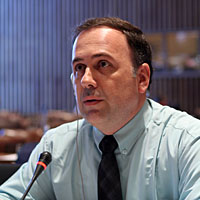
Marcos de Almeida of Brazil questioned how the steering group would
work, noting that there were cheaper ways of achieving transparency,
such as including the review of the Assessment of Assessments in the
Informal Consultative Process.
|
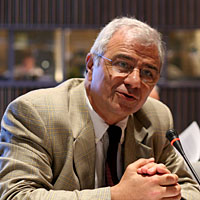
Elie Jarmache of France enquired about the composition of the expert
group, questioning whether it would include only representatives of
member States, or also experts from agencies.
|
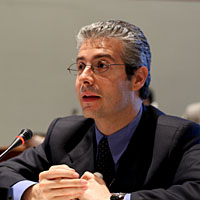
Alfonso Ascencio Herrera of Mexico highlighted the need for a healthy
balance between efficiency and transparency, stating that only states
and leading agencies should be represented on the steering committee.
|
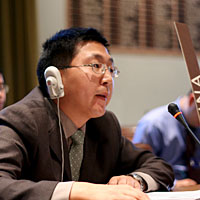
Zhou Yong of China said it was too early in the process to determine
whether regional approaches were appropriate.
|
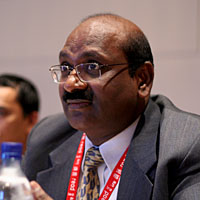
Manimuthu Ghandi of India underscored lack of clarity for the terms
"geographical scale," "ecological scale," and "regional approaches," noting
an expert should be identifying the scope of these definitions.
|
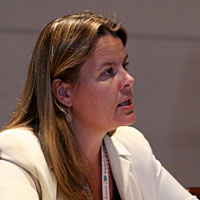
Mari Skâre of Norway advocated for a "light structure" for the task
force, and questioned whether the Informal Consultative Process is
the right forum for policy guidance, stressing that this discussion
belongs in the General Assembly.
|
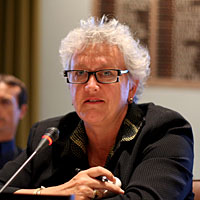
Lori Ridgeway of Canada underlined that the review does not have to take
place mid-term, but can be ongoing.
|
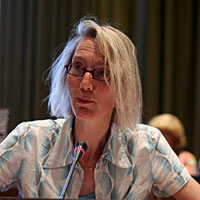
Hermien Busschbach of the Netherlands stressed that the language of the
conclusions should reflect the outcome of the WSSD.
|
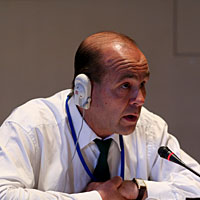
Bosse Hedberg of Sweden supported a proposal to use language from General
Assembly resolution 59/24 that called for the establishment of the GMA.
|
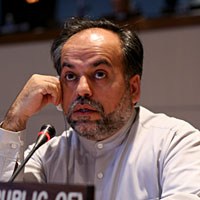
Mostafa Dolatyar of Iran asked whether UN agencies were prepared to assume
responsibility for the GMA.
|
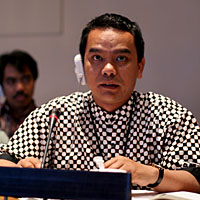
Tri Tharyat of Indonesia warned against prejudging the General Assembly's
decision on outputs from the Assessment of Assessments.
|
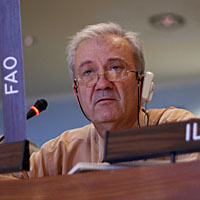
Serge Garcia of FAO expressed concern that lack of information on the
need for additional funding would delay the assessment process.
|
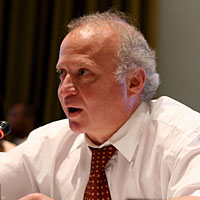
Stefan Kiel of Germany called attention to a point requiring the GMA's
work to be relevant, stating that obviously work should be relevant.
|
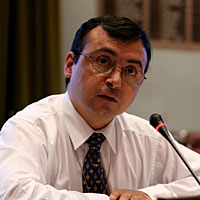
Ignacio Llanos of Chile stressed the need to include reference to
addressing socioeconomic aspects.
|
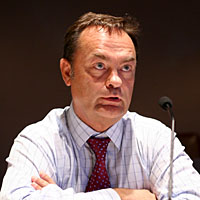
DOALOS Director Vladimir Golitsyn indicated that there might be
budgetary implications for the UN.
|
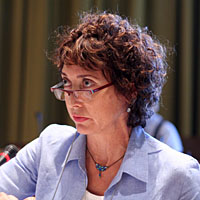
Jane Willing of New Zealand noted that doing away with the proposed
steering committee could give raise to criticisms of the process.
|
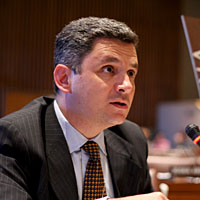
Diego Malpede of Argentina reiterated concerns regarding the
appropriate level of geographic scale of the assessment.
|
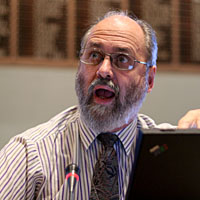
Jake Rice of Canada convened a group during the lunch break to redraft
a paragraph that had been eluding consensus.
|
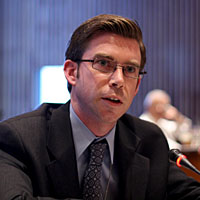
Ben Playle of Australia agreed with the Chair that some decisions on
group memberships could be left for the General Assembly to consider.
|
|
Around the GMA
|
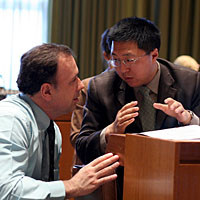
Marcos de Almeida of Brazil confers with Zhou Yong of China.
|
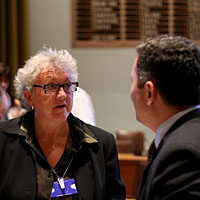
Lori Ridgeway of Canada confers with Diego Malpedes of Argentina.
|
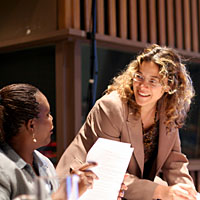
Workshop Secretary Alice Hicuburundi answers a question from Elisa Morgera
of the ENB
|

Your Earth Negotiations Bulletin team for UNICPOLOS-6 and the
second GMA international workshop: Cecilia Vaverka (Sweden, writer),
Alice Bisiaux (France, team leader), Robynne Boyd (South Africa, writer),
Elisa Morgera (Italy, writer), Dan Birchall (United States, digital
editor).
|

